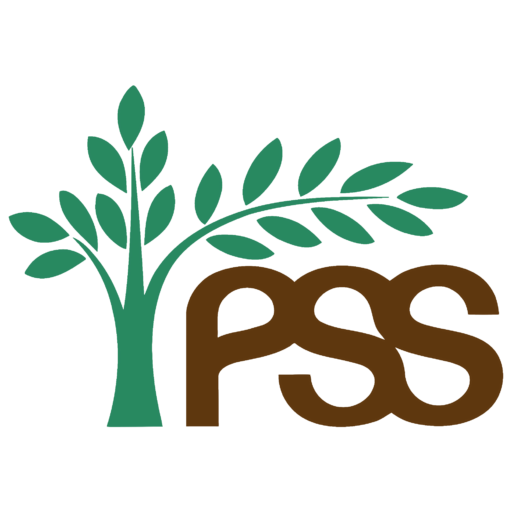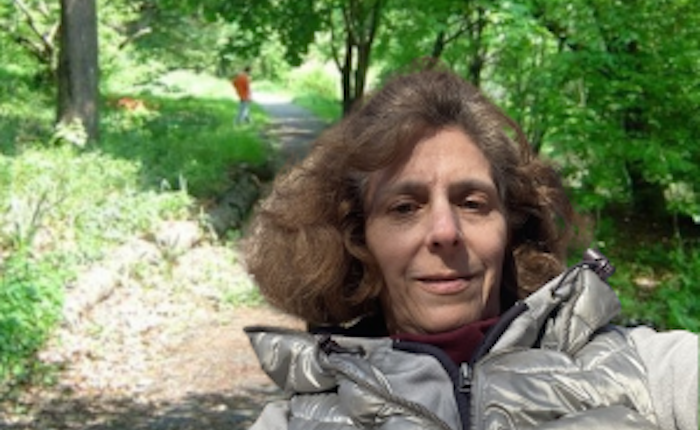In today’s fast-paced, technology-driven world, many people find themselves feeling stressed, disconnected from nature, and overwhelmed by the constant buzz of modern life. Amid this chaos, an ancient practice from Japan has been gaining widespread attention for its potential to bring healing and restoration to both the body and mind: Shinrin-yoku—or forest therapy. (Pictured above: Lori Klamner, forest therapy guide.)
What is Shinrin-yoku?
Shinrin-yoku, which translates to “forest bathing” or “taking in the forest atmosphere,” is a practice that originated in Japan in the 1980s. Unlike traditional hiking or outdoor exercises, shinrin-yoku is about immersing oneself in the natural environment and reconnecting with the sights, sounds, smells, and textures of the forest. The goal is not to exercise or reach a particular destination, but to slow down, observe, and take in the healing power of nature.
While the concept of spending time in nature for wellness isn’t new, shinrin-yoku brings a structured approach, encouraging individuals to disconnect from their daily distractions and embrace the calming effects of the forest. The practice involves sensory engagement—touching the earth, breathing in the fresh air, listening to the rustling leaves, and observing the surrounding flora and fauna.
The Science Behind Shinrin-yoku
Studies have shown that spending time in forests can have profound benefits for our health and well-being. In Japan, where the practice of shinrin-yoku has its roots, research has been conducted to examine the positive effects of forest environments on mental and physical health. The results are impressive.
- Stress Reduction: One of the most significant benefits of shinrin-yoku is its ability to lower stress levels. Studies have found that spending time in nature can reduce cortisol, the body’s primary stress hormone, which decreases feelings of anxiety and tension. Being surrounded by trees and greenery promotes relaxation and reduces the physical symptoms of stress, such as high blood pressure and heart rate.
- Boosted Immune Function: Forest environments are rich in phytoncides, which are natural chemicals produced by trees and plants. These compounds have been shown to enhance immune system activity, increasing the production of white blood cells and improving the body’s ability to fight off infections. Research suggests that regular exposure to nature boosts overall immune function, helping the body stay healthy and resilient.
- Improved Mood and Mental Clarity: Shinrin-yoku has been shown to have a positive impact on mental health. Studies suggest that spending time in nature helps alleviate symptoms of depression, anxiety, and fatigue. The tranquility of the forest and the act of being present in the moment can restore mental clarity and promote a sense of well-being. For many, it’s an opportunity to step away from the pressures of daily life and find inner peace.
- Improved Sleep: Exposure to natural environments has also been linked to better sleep. The calming effects of the forest can regulate circadian rhythms, making it easier to fall asleep and stay asleep. Many people report a deep sense of relaxation and improved sleep quality after engaging in forest therapy.
- Enhanced Creativity and Focus: Spending time in nature has been shown to boost cognitive function. A study published in the PLOS One journal revealed that individuals who spent time in natural environments demonstrated improved creativity and problem-solving skills. Forest bathing helps rejuvenate the mind, making it easier to concentrate and think more clearly.
How to Practice Shinrin-yoku
While shinrin-yoku doesn’t require any special equipment or training, it does require a mindful approach. Here’s how to practice forest therapy:
- Find a Forest or Natural Space: Ideally, choose a forest, park, or green space where you can be surrounded by trees, plants, and wildlife. The more natural and untouched the environment, the more you can connect with the elements.
- Disconnect from Technology: To truly embrace the therapeutic effects of shinrin-yoku, it’s important to leave behind distractions. Turn off your phone, GPS, and any other devices that may detract from the experience. This allows you to fully immerse yourself in the natural world.
- Slow Down and Engage Your Senses: Shinrin-yoku is about slowing down, rather than rushing through the forest. Take your time to walk slowly, breathe deeply, and notice the small details around you. Feel the texture of the bark, listen to the rustling leaves, breathe in the fresh air, and observe the different colors and shapes of plants and animals.
- Mindful Breathing: A core element of forest therapy is mindful breathing. The practice encourages deep, slow breaths to help calm the mind and reduce stress. This simple technique can help bring your body into a state of relaxation.
- Stay Present: The essence of shinrin-yoku is being present in the moment. Let go of worries about the past or future, and focus solely on the natural surroundings. This mindful approach can help clear mental clutter and promote a sense of peace.
Why Shinrin-yoku Matters
In our increasingly urbanized and digital world, taking the time to reconnect with nature has never been more important. With the rising stress levels, mental health issues, and the constant demands of modern life, practices like shinrin-yoku offer a simple, yet powerful way to regain balance and find serenity.
By spending time in nature, we not only reap the physical benefits of improved immune function and stress relief, but we also nourish our mental and emotional health. Forest therapy reminds us of the deep connection we have to the natural world and the power of simply being present in it.
Conclusion
Shinrin-yoku is more than just a walk in the woods—it’s a mindful and therapeutic experience that offers a wealth of health benefits. By slowing down, engaging our senses, and immersing ourselves in nature, we can combat stress, improve our immune system, boost mental clarity, and enhance our overall sense of well-being. In a world filled with distractions and pressure, forest therapy offers a peaceful sanctuary for those seeking restoration, healing, and connection to the natural world.
So next time you feel overwhelmed, consider stepping into the forest—your mind and body will thank you.


